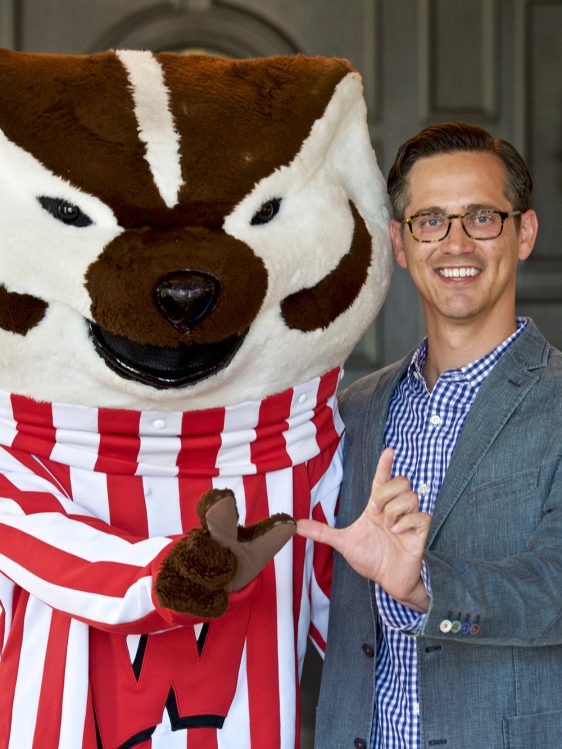Associate Professor
College of Letters & Science l Nelson Institute for Letters & Science
Joshua Calhoun is an Associate Professor of English at the UW-Madison who specializes in Shakespeare, 16th- and 17th-century poetry, and the history of media. As a Faculty Affiliate at the Nelson Institute for Environmental Studies, he also teaches courses in the environmental humanities. In his teaching and research, he gets to explore three things he loves (and thinks everyone else should love, too): Shakespeare, old books, and nature. His work has appeared in Adirondack Life, Environmental Philosophy, Outside Magazine, PMLA, and Shakespeare Studies, and he recently published The Nature of the Page: Poetry, Papermaking, and Ecology in Renaissance England (UPenn Press, 2020).
Talks:
Losing the Past: The Future of Archives in the Anthropocene
Conservation versus preservation debates are as relevant in the library as they are in the woods. If even the most optimistic climate models prove true, printed books and manuscripts that have survived for over 400 years cannot possibly last 400 years more. Exploring the conditions of book survival in present-day archives, this talk raises questions about air-conditioned archival microbiomes and environmental responsibility.
Caliban’s Land Ethic
How much is enough? The root of Caliban and Prospero’s conflict in The Tempest is as much about human relationships to the environment as to each other. Drawing on Aldo Leopold’s famous essay “The Land Ethic,” this suggests that one of Shakespeare’s most famous plays also stages a uniquely insightful ecological and ethical debate.
Making “Shakespeare,” Then and Now
How does a play like Hamlet get from Shakespeare’s brain into our hands or onto our screens? This talk explores Shakespeare’s writing process, but it also considers how ideas become plays in Renaissance England, how plays become books, and how Shakespeare’s ideas are remade and re-imagined today.
“Books in the Running Brooks”: Paper, Printing, and Pine Trees
The paper used for most of the history of printed books was made from recycled clothing, not trees. This talk explores the history of papermaking from Shakespeare to the American Revolution to the timber booms that shaped the history of Wisconsin—and the paper on which that history would be told.
Shakespeare’s Genome?
Intriguing, bookish collaborations are bringing humanists and scientists together in an unlikely space: rare books archives, where studying old books all the way down to the microbial level is changing what we know about the habits and habitats of historical books readers. This talk demonstrates how close reading coupled with proteomic sequencing can tell us more about Shakespeare’s biome—and maybe even his genome.
